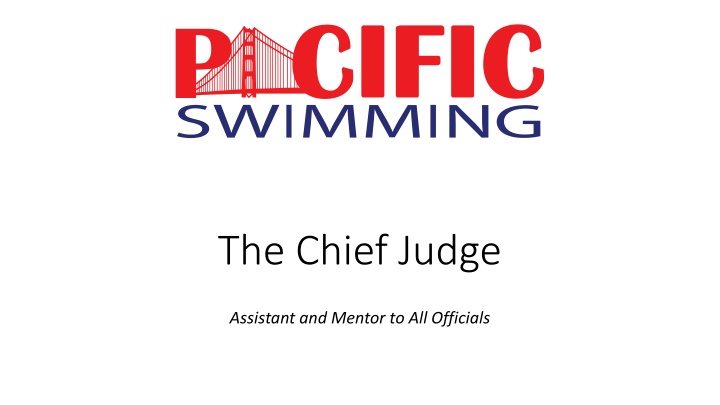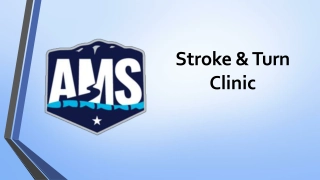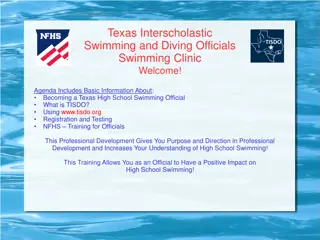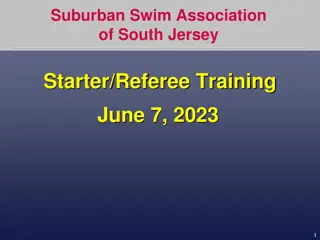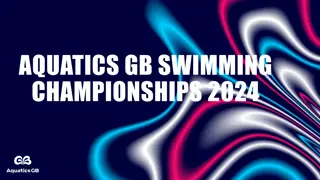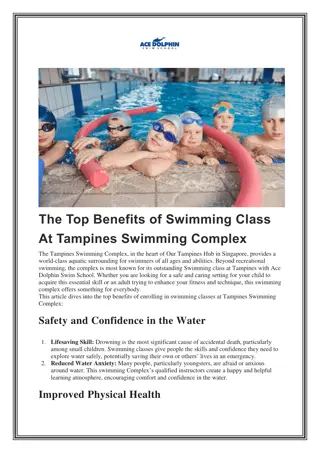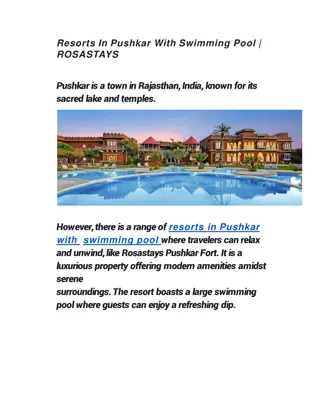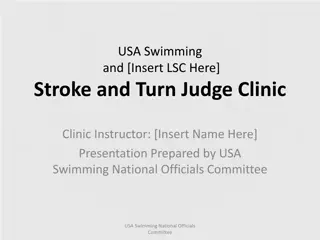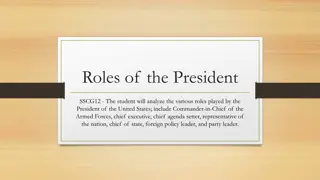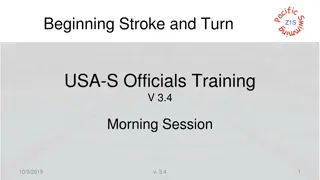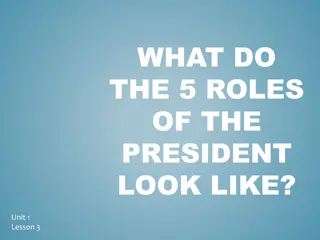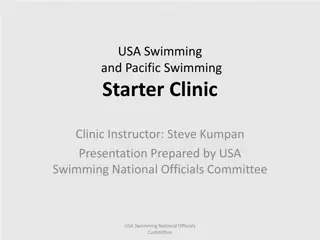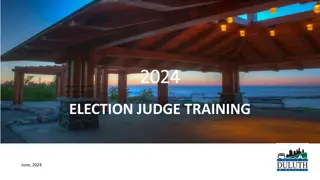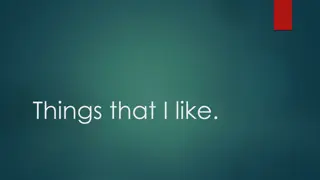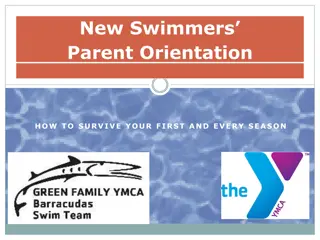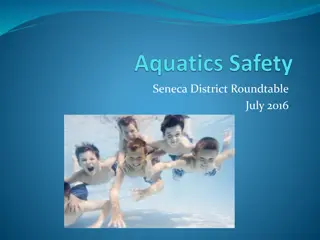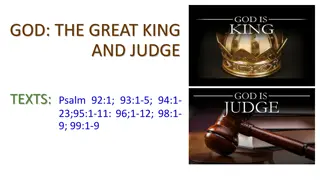Guide to Becoming a Chief Judge in Swimming Meets
Discover the essential role of a Chief Judge (CJ) in swim meets, how to become one, qualities needed, and a step-by-step overview of your first session as a CJ. Learn the key responsibilities and traits required for a successful Chief Judge. Dive in and elevate your officiating skills!
Download Presentation

Please find below an Image/Link to download the presentation.
The content on the website is provided AS IS for your information and personal use only. It may not be sold, licensed, or shared on other websites without obtaining consent from the author.If you encounter any issues during the download, it is possible that the publisher has removed the file from their server.
You are allowed to download the files provided on this website for personal or commercial use, subject to the condition that they are used lawfully. All files are the property of their respective owners.
The content on the website is provided AS IS for your information and personal use only. It may not be sold, licensed, or shared on other websites without obtaining consent from the author.
E N D
Presentation Transcript
The Chief Judge Assistant and Mentor to All Officials
Plan / Agenda Introductions Becoming a Chief Judge Qualities of a Good CJ Age-Group / Zone Meet CJ Junior Olympics & Far Westerns Sectionals, Zone Meets & Beyond
Official Description of CJ Rules 102.13 JUDGES Shall have jurisdiction over the swimmers immediately after the race has begun. .1 Chief An overall Chief Judge may assign and supervise the activities of all stroke, turn, place and take-off judges and may report their decisions. If desired, any judging category may have a designated Chief. Any Chief may act as liaison for the judges and may serve simultaneously in one of the judging positions and shall assign those judges within the Chief s category. USA-S Professional Docs
What is a Chief Judge? The Chief Judge (CJ) is Key to a Smoothly Running Meet CJ is the liaison between the Deck Referees and the Stroke & Turn Officials CJ is also the liaison between the Coaches, the Corner and Admin A good CJ (or CJ Team) can make the difference between an okay meet and a Great meet for everyone involved
Becoming a Chief Judge How do most of us become a CJ the first time? Work as Stroke & Turn for a while Show up at a meet one day and someone in the corner says Hey, can you be CJ today? Organize the Stroke & Turn teams for that day Handle some DQs Do an evaluation or two Wash, rinse, repeat... Ta da! You re a CJ
Qualities of a Good Chief Judge Professional Leader Cooperative Organized Team Player Knowledgeable Observant Strong Mentor Calm Fun
Your First Session as CJ Review sign-in sheet with MR or Head Starter Sketch-out team assignments Present teams during meeting Adjust for the two late arrivals Sit down and relax when first heat is whistled up Immediately switch into CJ mode when first hand goes up Respond to every call Discuss with S&T Walk slip to DR Walk back to ask more questions If approved, deliver DQ slip to coach Repeat for 4 hours Break during 200 FR if you re lucky
Mentoring A big part of being Chief Judge at a Zone meet Active engagement with Stroke & Turn officials If you re not responding to a raised arm you re likely asking someone how it s going or providing positioning feedback etc. You might actually watch swims in order to provide feedback Often step in to cover position while S&T official writes slip
Zone CJ Progression Age Group Meet CJ Typically one CJ for entire meet if single course Takes care of everything related to S&T Walks a lot Never gets a break Can be the hardest working job at an age group meet Larger Age Group Meet CJ May have CJ and one or two ACJs (all assigned upon arrival) ACJ assigned to each course (SCY) or end (LCM) CJ overseeing both sides, delivering DQ slips and providing relief
Zone Meets as Transition Zone 2 Championship Typically small CJ team assigned in advance First introduction to radios for many CJs Basically a large age-group meet with radio protocol that suggests transition to Junior Olympics and Far Westerns
Pacific (LSC) Meets Junior Olympics Winter 14&U December 6 8 in San Jose (QSS) OQM N2 Spring 14&U Short Course March 13 15 in Santa Clara (SCSC) Summer Long Course July 10 12 in San Jose (QSS) Far Western Championships (both OQM) Short Course April 2 5 in Pleasanton (PLS) Long Course July 23 26 in Concord (TERA) Senior Meets Timed Finals Prelims & Finals OQM: Senior II Trials & Finals November 9 10 in Pleasanton (PLS) OQM: Senior Open Trials & Finals February 15 16 in Santa Cruz (ACSC) Assigned positions
Whats Different Chief Judge Team Team Lead Chief Judge Several Assistant Chief Judges Deck Protocol Radios Notification Zone Championships may be run similarly
Team Lead Additional prep work prior to the meet Typically more preparation is required for Far Westerns than JOs Confirm expectations with Meet Referee Uniform / Dress Code Jurisdiction Positioning Meeting Times Social Events / Activities for Officials Organize CJ Team Confirm everyone is available on the days expected List on website may be out-of-date or plans may have changed Assign tasks to ACJs for each session (or day)
Rotations / Tasks Radios: Checkout, Radio Check, Check-In Sign-In / Credential Check May include handing out Meet Credentials, Shirt etc. Team Setup / Rotation Stroke Briefing Protocol & Jurisdiction Briefing Ice Breaker / Fun Paperwork: Relay Take-Off, Count Sheets, Bells Towel-off Timing Chairs (!)
Radios Pacific s Radios SN uses same, CA is very different, others ?? Familiarize yourself with the hardware Headsets Push-to-talk Who? Every deck referee, chief judge, admin, meet referee & evaluators Primary purpose is expediting disqualification process (including NS) Assigned ACJ ensures everyone receives a radio Radio Check before session begins
Sign-In & Team Setup Often the same ACJ handles both Make sure every S&T judge signs in and confirm credentials are valid Membership Current Background Check Athlete Protection Concussion Certification Confirm S&T Cert Levels Are evaluations being requested? National LSC (CJ Team generally handles) Shirt, pin, credential
Team Setup Team count and sizes depend on number of S&T judges Late arrivals are still an issues even at Far Westerns Balance teams by grouping similar experience / certification levels Evaluation considerations can come into play (but not always) Generally finalizing this during first part of meeting Late arrivals or odd-counts can be assigned to relief roles or 15m marks Use Pacific forms for meets up through Far Westerns National Meets use National Assignment Worksheets
Pre-Sessions Officials Meeting CJ or ACJ runs meeting Introduce Meet Referee, corner teams, Admin (if present) and Evaluators Meet Ref generally makes a few comments Icebreaker / fun (time limited) Stroke Briefing Protocol / Jurisdiction Briefing Team Assignments Meet Ref / Head Starter may have separate chat with corners (depends on who it is) Often a Guest Speaker for Finals
Briefings Stroke Briefing Standard Version on USA-S site But that is a bit dry Come up with a format that is comfortable to you Do NOT create a call of the day situation Suggest that any questions be handled after meeting Jurisdiction Diagram showing lanes and rotation very useful here Don t forget freestyle reduction, wrap for backstroke starts, breakdown CJ team should confirm prior to session Protocol Review radio protocol, national deck etc.
Paperwork Preparing relay early take-off slips Copying assignments for CJ team, MR & Evaluators Count sheets & bell for distance DFS clipboard Drying timer chairs
Radio Protocol Always listen before you talk whistles, radio traffic, both your course and the other side / end Press and hold the push-to-talk button Wait a second Begin speaking slowly and clearly Possible disqualification, Girls Course, Turn End, Lanes 5-6 Complete trip to the S/T judge Lane 6 Have discussion with S/T
Radio Protocol, Continued Radio in the full details and your recommendation If you believe the DQ is valid: Girls course, event 33, heat 3, lane 6. Official observed a non-simultaneous touch at the turn. Recommend acceptance. or Recommend disqualification. DR may ask for details or may simply repeat / confirm Event 33, heat 3, lane 6, non-simultaneous touch. I ll accept that call, please write it up and notify the swimmer. If you have concerns: Girls course, event 33, heat 3, lane 6. Official noted an underwater recovery coming in to the wall for the turn. I have concerns about this call and do not recommend Language here varies DR will normally restate and concur: Event 33, heat 3, lane 6. Call is rejected.
Notifying Athletes We normally try to have a CJ notify athlete of a disqualification immediately after the swim If the DQ was observed on the other end of the pool then the ACJ for the Start End or CJ will likely need to handle notification Paying attention to the radio traffic is key You can be in position to notify athlete of a potential DQ on even a short event Whether or not we do that is at discretion of Meet Referee Try not to touch the athlete -- Excuse me, are you Debbi? I m sorry to inform you that you ve been disqualified for a non- simultaneous touch. Another area where local custom or Meet Ref may dictate change
Delivering DQ Slips to Coaches The yellow copy is still delivered to coach If athlete was not notified then that becomes high priority Coach reactions vary Be prepared to answer some questions upon delivery
Protests / Challenges You (the CJ) are the face of the Official Team You buffer the S&T officials Do not let coaches, parents or swimmers question or challenge the S&T judge directly Guide the protest process to the deck referee who accepted the call Be prepared to speak with the S&T judge again or possibly replace them in their jurisdiction while the DR talks with them Generally you will have vetted the call in sufficient detail already, but you still go and visibly talk to the judge again after a coach has initiated a protest At Far Westerns almost every call will be protested Coaches are doing their job, advocating for their swimmers A clear, consistent explanation is normally good enough. Vagueness or uncertainty will result in a call being overturned
CJs Outside of Pacific Other LSCs may or may not use Chief Judges If they do, the role may still be different Southern California as Example Don t typically use a CJ for their Age Group meets Entire official crew for a meet may seem small Rotation around multiple positions on deck during a session Everyone is on the radio No DQ slips everyone uses alphanumeric codes But, when they host a national level meet they transition to a more familiar model and need a proper CJ Team
Sectional Meets Sectional Meets are one star National meets A great opportunity to work a national deck outside of Pacific Meet officials from other California LSCs Three CA/NV Sectional Meets each year Winter (SCY) December 13 15, 2019 at East LA CC Spring (SCY) February 27 March 1, 2020 at TBD (Carlsbad 2019) Summer (LCM) July 16 20, 2020 at TBD (Santa Clarita 2019 & 2018) Bids for Spring and Summer are due tomorrow (October 13) Winter (SCY) December 17 20, 2020 at East LA CC Partial travel support from LSC
Western Zone Championships Western Zone includes 17 LSCs in the Western USA Two championship meets each year Varying location with bid process Senior Championship Clovis, CA (Fresno) Some LSCs send All-Star teams, Pacific attendance by clubs Age Group Championship Roseville in 2017 & 2018 Oregon in 2019 & 2020 Elk Grove in 2021 WZ Officials Mentoring and Reimbursement Program
National Meets Nationals & Juniors were at Stanford in 2019 Pro Series Futures U.S. Open (Dec 4 7, Atlanta) Winter Juniors (Dec 11 14, Federal Way & Atlanta) Olympic Trials
Evaluations You may be providing feedback to National evaluators Could happen on second day of meet for N2 or N3 ST You will be writing and/or providing feedback for LSC evaluations Team Lead may also be asked about ACJ performance Always know the expectations for the role you re evaluating Honestly assess performance in that role If you re writing the evaluation you should discuss with the Meet Referee And you may also end-up presenting it to the official Maybe a good idea for you to take a picture as well if the MR is going to send them in
End of the Meet Thank all of the officials for their work Ensure all LSC evaluations are complete and discussed Confirm that all officials are on sign-in sheets for correct sessions Be sure all names are legible and info is complete Send the information in a timely manner to the Meet Referee Some national meets Team Lead may handle OTS entries Thank all of the officials for their work
Benefits of being a CJ You learn a lot Exposed to everyone s call Learn to discuss, interpret and then relay that information to DR Most officials first exposure to the Corner Newbie S&T fear the corner First meet as CJ you re going to be shuttling slips to the corner and learning how a Deck Referee will vet the call, mark their board etc. Meet all of the coaches when you deliver DQ slips to them And you learn what they re going to ask in order to clarify etc. Establish great working relationships with your fellow officials and coaches!
Resources https://www.usaswimming.org/utility/landing- pages/officials/officials-education-and-training-resources https://www.usaswimming.org/utility/landing- pages/officials/national-certification-and-evaluation Professional documents are here http://www.pacswim.org/members/zones/officials Meet assignments will be linked in News section
